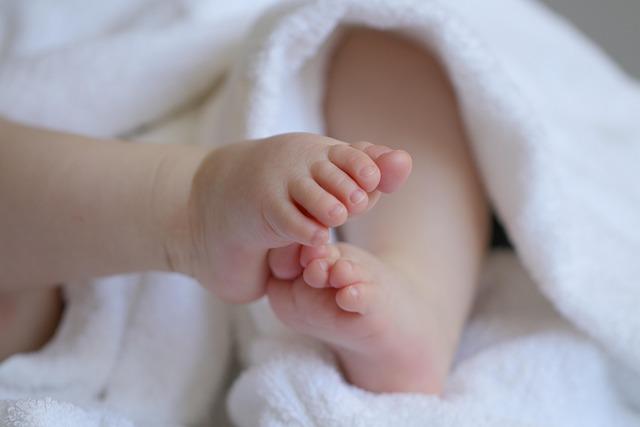Becoming a new parent is exciting—adn honestly, a little overwhelming. Between diaper changes, sleepless nights, and endless cuddles, it’s easy to feel like you’re juggling a million things at once. But when it comes to your baby’s health, a few simple tips can make all the difference in keeping your little one happy and thriving. Whether you’re a first-timer or just need a fast refresher, we’ve gathered some super straightforward baby health tips every new parent should know. No stress, no fuss—just practical advice to help you feel confident on this amazing journey!
Getting Started with Baby’s Nutrition: What New Parents Need to Keep in Mind
When it comes to nourishing your little one,remember that every baby is unique and will show different signs of readiness for foods beyond milk. Initially, whether you choose breastfeeding, formula, or a combination of both, maintain a relaxed attitude and trust your baby’s cues. Responsive feeding—paying attention to hunger and fullness signals—helps build a healthy relationship with food from the very start. Also, don’t rush introducing solids; many experts recommend waiting until around 6 months of age, but always consider your pediatrician’s advice as well.
Introducing new foods can be an adventure! Start with gentle textures like pureed veggies or iron-fortified cereals, and watch for allergies or sensitivities. Hear are a few essentials to keep handy:
- Diverse flavors: Rotating fruits, veggies, and grains encourages acceptance and curiosity.
- Hydration: Once solids start, small sips of water can complement milk feeding.
- Avoid added sugars and salt: Their tiny kidneys and palates don’t need extras yet.
| Food Type | First Signs to Look For |
|---|---|
| Rice Cereal | Good tolerance & minimal spit-up |
| Pureed Carrots | Enjoys taste & no rash |
| Mashed Avocado | Soft texture acceptance |

Creating a Safe and Cozy Sleep Environment for Your Little One
Ensuring your baby’s sleep space feels inviting yet safe is key to peaceful nights for everyone. Start with a firm mattress topped with a snug-fitting sheet—nothing lose that could pose a hazard.Keep the crib clear of pillows, stuffed animals, and heavy blankets to minimize suffocation risks. Remember, a slightly cooler room (around 68-72°F) helps babies snooze more comfortably, and using a gentle white noise machine can mimic the cozy sounds they’re used to from the womb.
- Use breathable, natural fabrics like cotton for bedding and sleepwear to avoid overheating.
- Position your baby on their back to reduce the risk of SIDS (Sudden Infant Death Syndrome).
- Maintain a clutter-free environment to make diaper changes and nighttime check-ins smoother.
| Tip | Benefit |
|---|---|
| Using a sleep sack | Keeps baby warm without loose blankets |
| Soft night light | Helps parents check without fully waking baby |
| Regularly wash bedding | Prevents allergens and keeps smells fresh |

Understanding Baby’s Hygiene Basics without Feeling Overwhelmed
Keeping your baby clean doesn’t have to feel like a daunting task. Start with the basics: use mild, fragrance-free wipes or warm water and a soft cloth for diaper changes to prevent irritation. When it comes to bath time, a few minutes with lukewarm water and a gentle baby wash are enough to keep your little one fresh without drying out their delicate skin. Remember, babies don’t need daily baths—two to three times a week is usually enough unless they get especially messy. And don’t forget those little folds behind the ears and neck—they’re often overlooked but require a little extra attention!
To make hygiene routines smoother, here’s a quick cheat sheet to keep handy:
| Routine | Frequency | Tips |
|---|---|---|
| Diaper Changes | Every 2-3 hours | Clean front to back, dry completely |
| Bathing | 2-3 times/week | Use mild soap & lukewarm water |
| Face Cleaning | Daily | Soft cloth, avoid harsh wipes |
| Hair Washing | 1-2 times/week | Gentle baby shampoo only |
- Keep nails trimmed: Prevent accidental scratching by filing or clipping nails regularly.
- Avoid strong scents: Babies have sensitive skin—skip scented lotions or soaps to reduce irritation risks.
- Let skin breathe: Give your baby some diaper-free time to keep their skin healthy.
Recognizing Common Signs of Illness and When to Call the Doctor
Babies can’t tell us when they’re feeling unwell, so it’s critically important to keep an eye out for subtle changes in their behavior or appearance. Look for persistent fussiness, unusual lethargy, or a sudden drop in appetite as potential red flags. Other common signs include a fever above 100.4°F (38°C),difficulty breathing,or a rash that doesn’t fade when pressed. While some symptoms can be minor and resolve on their own,trust your gut—if something feels off,it’s always better to be safe then sorry.
Here’s a quick checklist to help you decide when it’s time to call your pediatrician:
- High fever: Especially in babies under 3 months old
- Persistent vomiting or diarrhea: signs of dehydration can develop quickly
- Breathing difficulties: Wheezing, rapid breathing, or chest retractions
- Unusual skin changes: Blue or pale skin, or a spreading rash
- Refusal to feed or fewer wet diapers: Possible signs of illness
| Symptom | when to Act | What To Do |
|---|---|---|
| Fever over 100.4°F | Promptly if baby is under 3 months | Call doctor promptly |
| continuous vomiting | after 2 hours | Monitor and hydrate; call if worsens |
| Breathing issues | Right away | Seek emergency care |
Q&A
Q&A: Simple baby Health Tips Every New Parent Should Know
Q: What’s the most important thing to remember about newborn health?
A: Keep things simple and trust your instincts! Newborns don’t come with a manual, but a lot can be handled by basics — clean hands, gentle care, and plenty of love.Q: How often should I bathe my baby?
A: Newborns don’t need daily baths.Three times a week is plenty to keep them clean without drying out their sensitive skin. And remember, sponge baths until the umbilical cord stump falls off!
Q: What’s the deal with baby’s skin? It looks so delicate.
A: Totally delicate! Use fragrance-free, gentle products made for babies. Avoid harsh soaps and lotions. when in doubt, just plain water is often enough for cleaning.
Q: How can I keep my baby safe from germs?
A: Wash your hands before holding the baby, especially if you’ve been out or around sick peopel. Limit visitors during cold and flu season and don’t be shy about asking others to wash up or reschedule if they’re feeling off.Q: How do I know if my baby is eating enough?
A: Watch for signs like steady weight gain,regular wet and dirty diapers,and a happy,alert baby after feedings. Breastfed babies often nurse every 2-3 hours; formula-fed babies usually eat every 3-4 hours.
Q: When should I call the doctor?
A: If your baby has a fever over 100.4°F (38°C), is unusually sleepy or irritable, won’t eat, or shows any signs of difficulty breathing, call your pediatrician right away. Better safe than sorry!
Q: Any tips for helping my baby sleep better?
A: Set a consistent bedtime routine—think quiet time,dim lights,gentle rocking. Always place your baby on their back to sleep to reduce the risk of SIDS, and keep the crib clear of pillows, blankets, and toys.
Q: How do I boost my baby’s immunity naturally?
A: Breastfeeding is a fantastic way to give your baby antibodies. Keep up with well-baby checkups and vaccinations. Plus, plenty of skin-to-skin time helps both of you stay healthy and bonded.
Q: What’s a quick way to soothe a fussy baby?
A: Try swaddling, gentle rocking, white noise, or a pacifier. Sometimes a little tummy rub or a warm bath can work wonders too. Every baby is different, so don’t get discouraged!
Q: Any final advice for new parents?
A: take care of yourself too! A happy, rested parent means a happier, healthier baby. Ask for help, don’t stress the small stuff, and enjoy those sweet, messy moments—they grow up fast!
Concluding Remarks
And ther you have it—some super simple baby health tips to keep in your parenting toolkit! Remember, nobody’s perfect, and every baby is unique, so trust your instincts and don’t be afraid to ask for help when you need it. Taking care of your little one is a learning journey, but with thes basics down, you’re already off to an awesome start. Here’s to happy, healthy babies and (mostly) stress-free days ahead! Cheers to you, new parents—you’ve got this!










